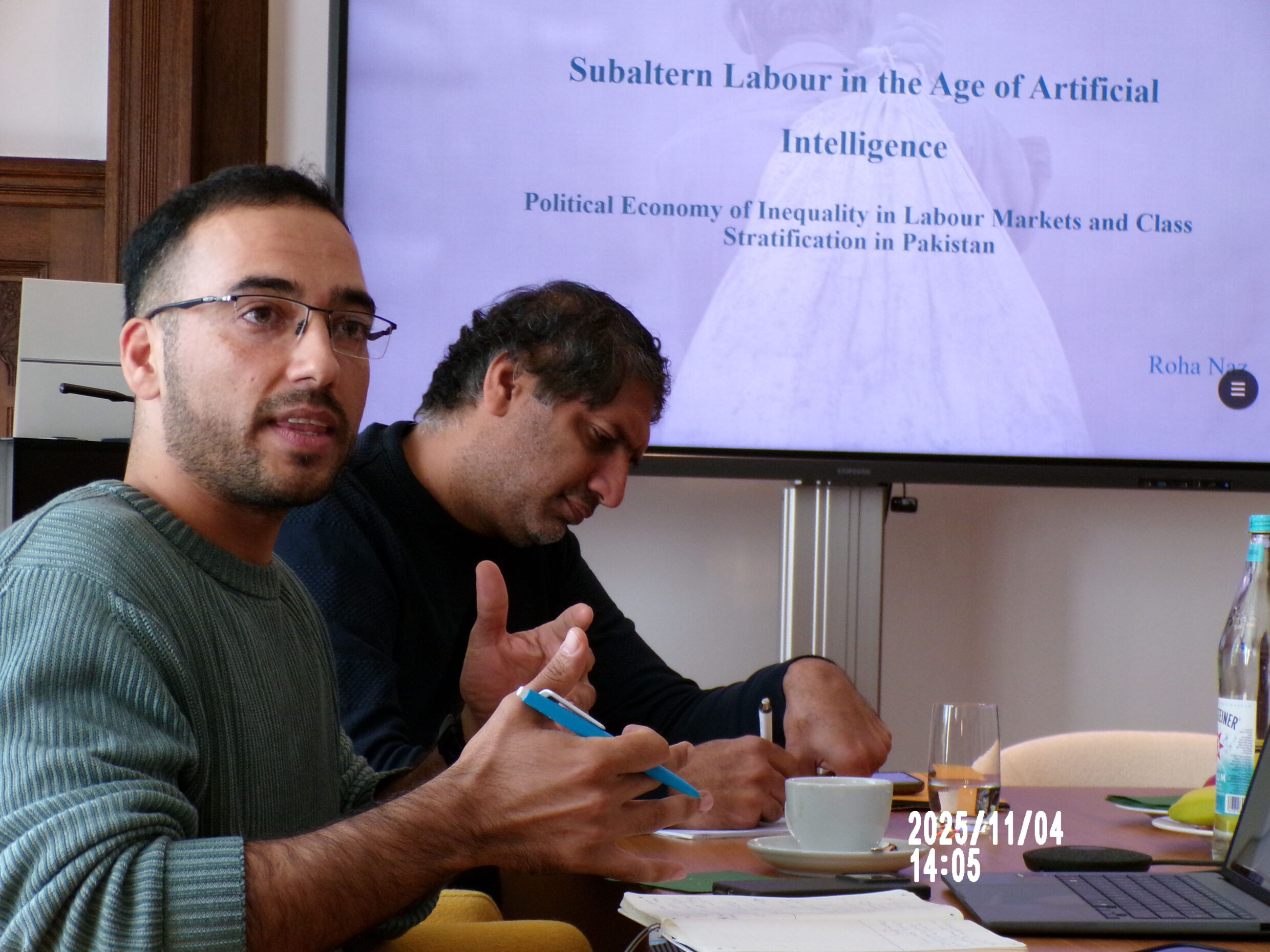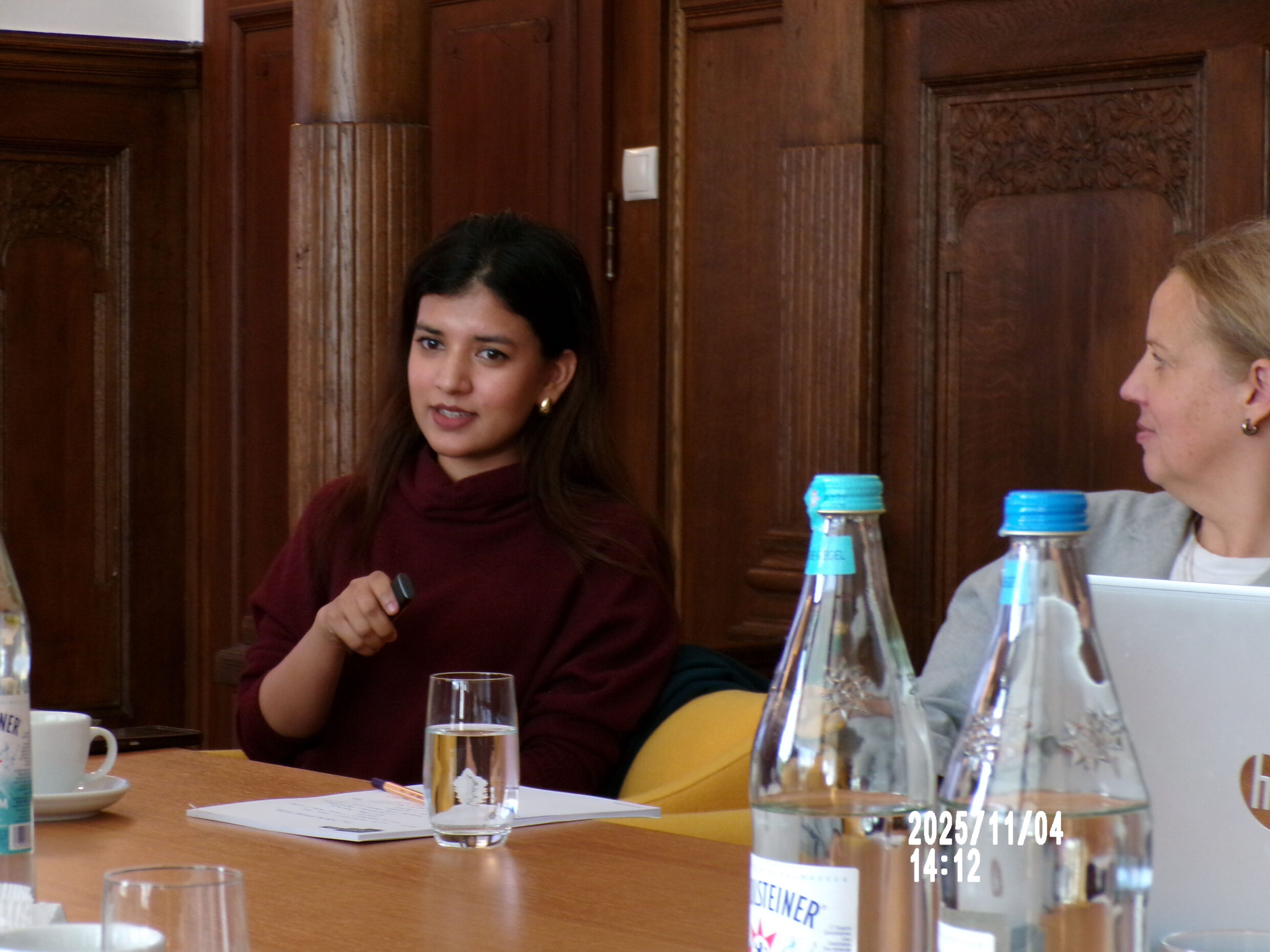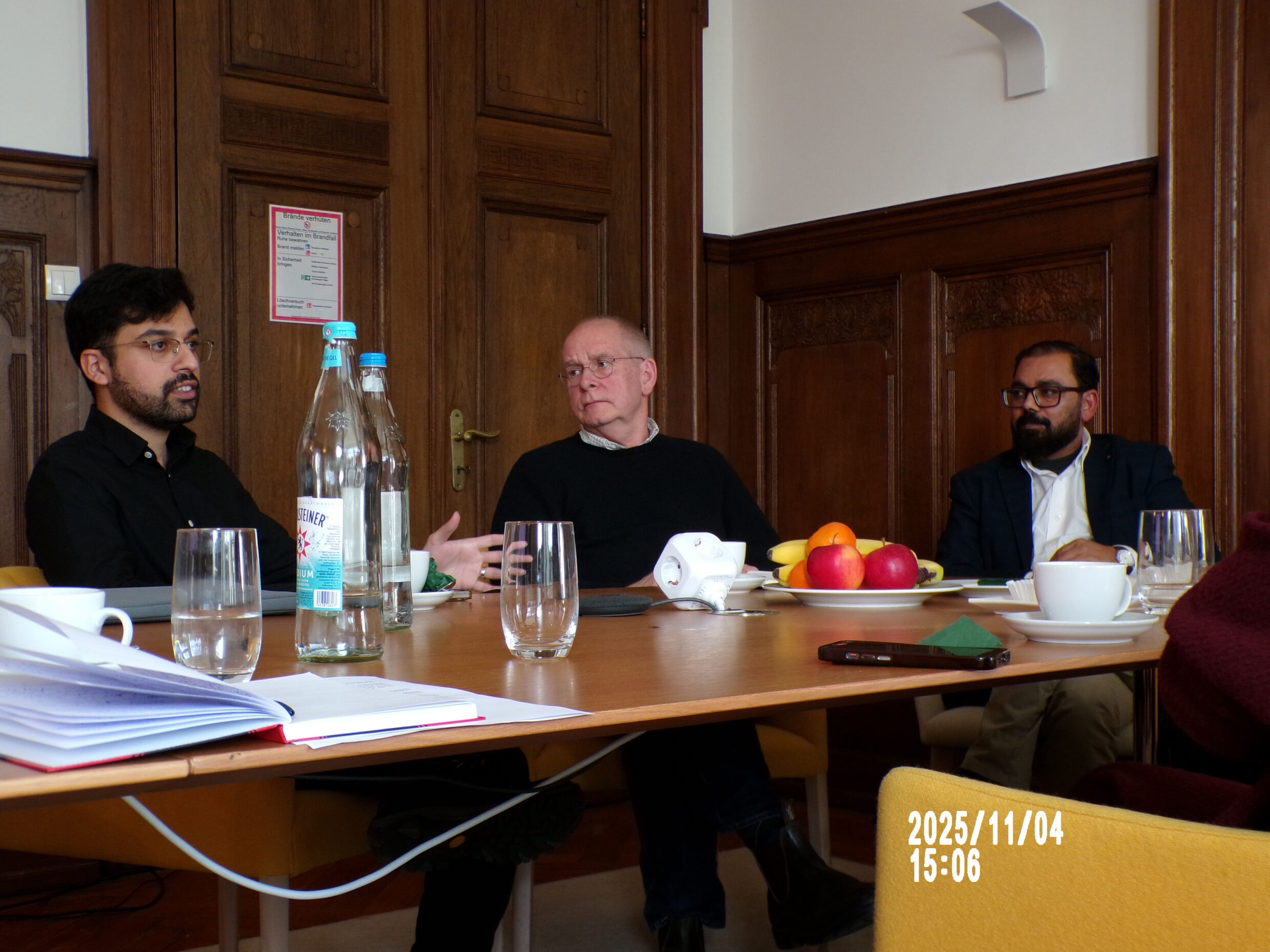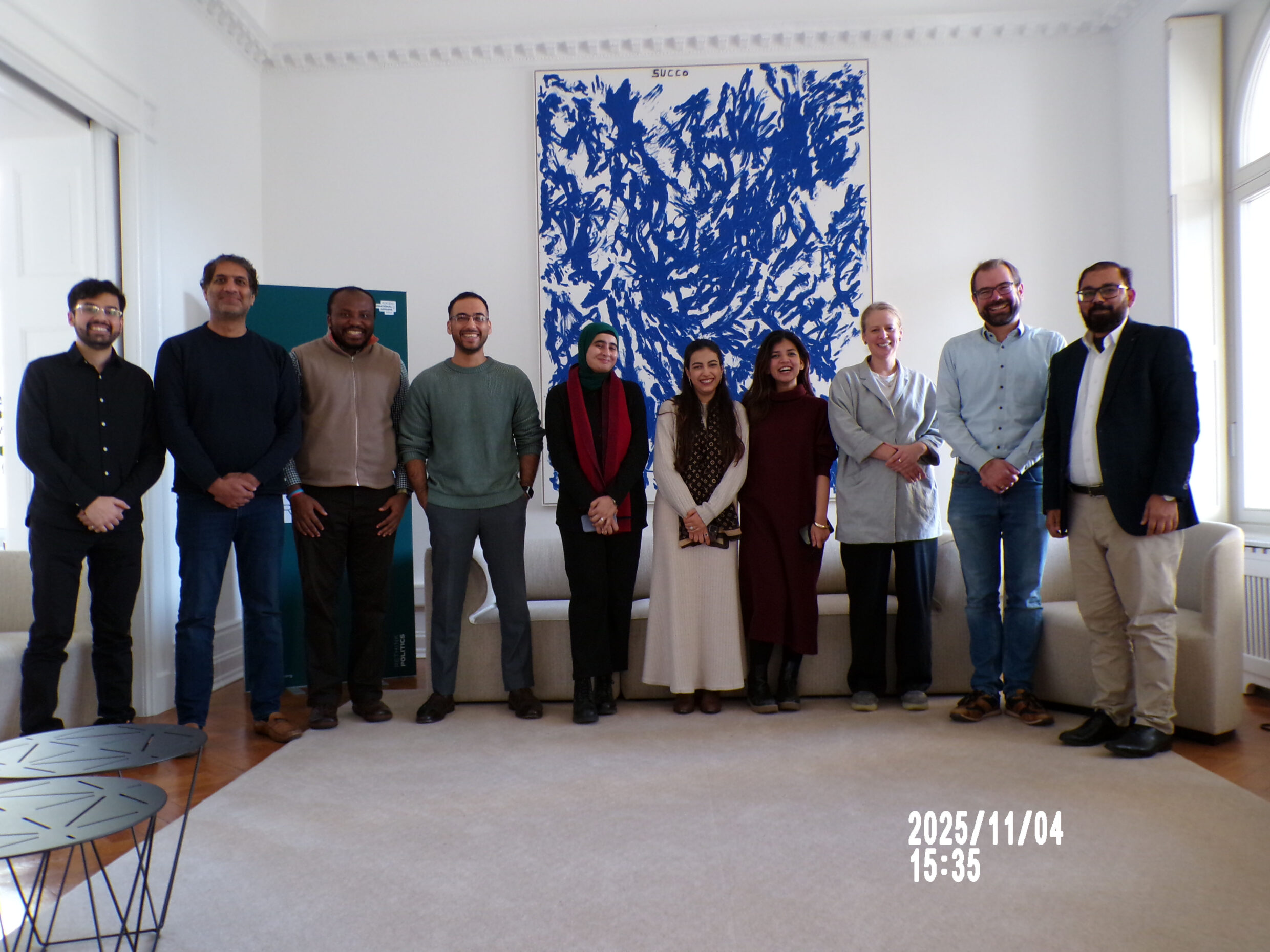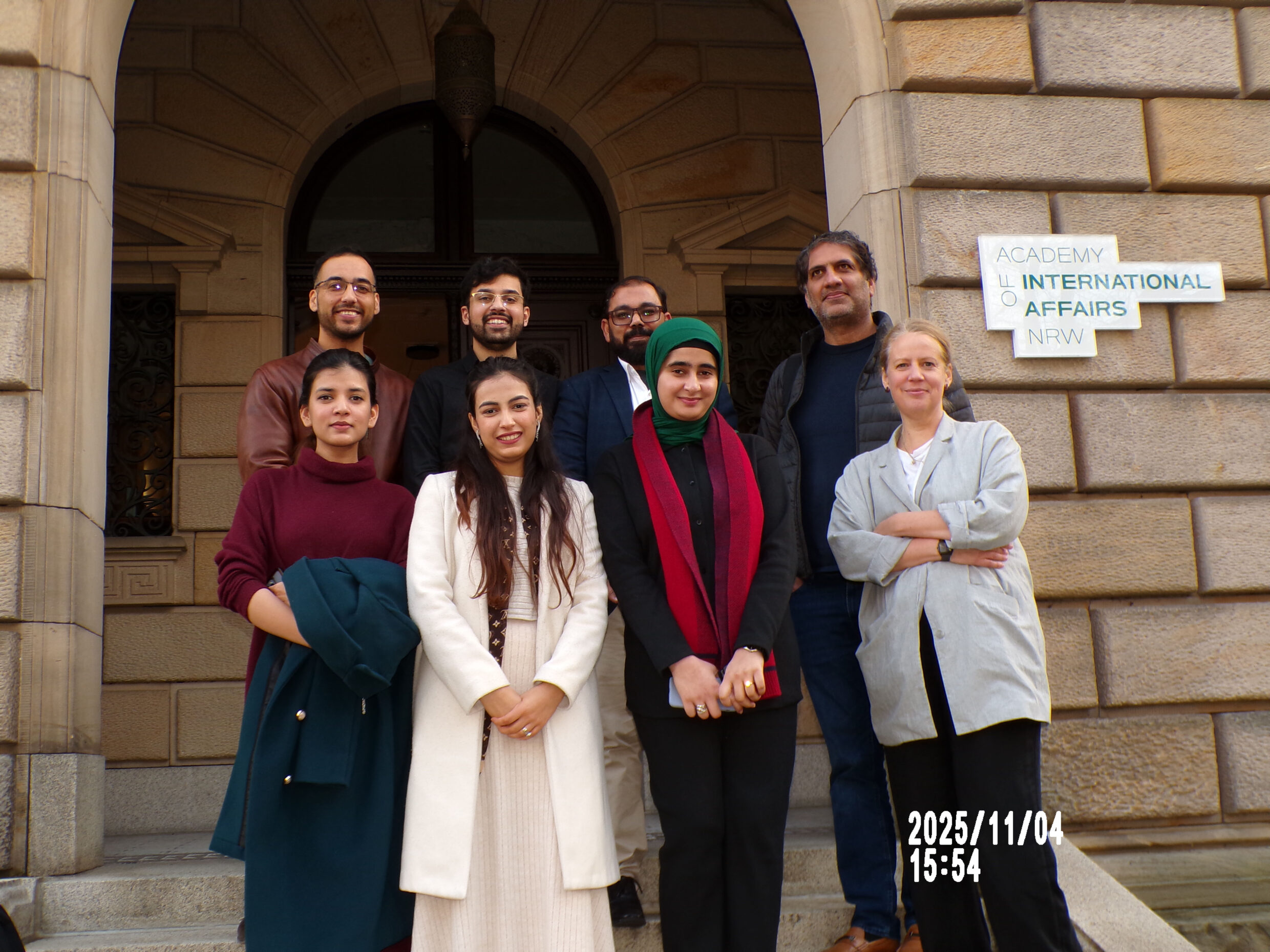The Academy of International Affairs NRW hosted a workshop convened by AIA Fellow Summar Barbar to emphasize the emerging importance of subnational diplomacy as a tool to reinstate Pak-German relations with the involvement of youth, academic cooperation, and cultural exchange. This event took place at a historically authentic location, as the premises of the AIA housed the Pakistani embassy during Bonn’s time as the capital. In his opening statement, Faraz H. Dahar, project manager at Engagement Global, also referred to the important initiatives for friendship between Germany and Pakistan that originated at Rheinallee 24. Subnational diplomacy is now metamorphosing and influencing long-term bilateral relations by converting scholarly and cultural interactions into long-term collaborations and shared understanding. Roha Naz from University of Duisburg Essen and Research Assistant at the German Institute of Development and Sustainability (IDOS) reflected on the subaltern labour in the age of artificial intelligence. Muhammad BilalfromHeidelberg University and long time program manager at Hanns Seidel Foundation’s Pakistan Office gave on overview on his personal, academic, and professional experience of major developmental challenges facing South Asia at the regional level and the role of sociopolitical multipliers, particularly young people in their solution.
Some prominent challenges include climate change, urban sustainability and food security. He also reflected on his time at the South Asia Institute of Heidelberg University, and the importance of people-to-people contact. Kainaat Akhtar from Heidelberg University spoke about Minority under Majority Rule, also with comparative lesgender inequality in opportunities from choosing a career, profession to education in Pakistan. Amna Mir from the University of Duisburg-Essen discussed the barriers of out-of-school children in Pakistan in urban settings of Pakistan and what challenges they face. She reflected on the difference of opportunities and quality of life between Pakistan and Germany. Muhammad Danish Masood from Heidelberg University and previously community development social worker at Jhuggi Taleem Foundation discussed his research on exploring the role of blue economy in sustainable development in Pakistan. He shared his comparative experience in terms of people, food, culture, language and travel as well.
In discussions with the Academy’s fellows, it became clear that the transformative power of subnational diplomacy is based primarily on interpersonal relationships. Sustainable cooperation does not only arise at the official political level, but also, and very significantly, through interpersonal relationships and shared visions for the future.
Info:
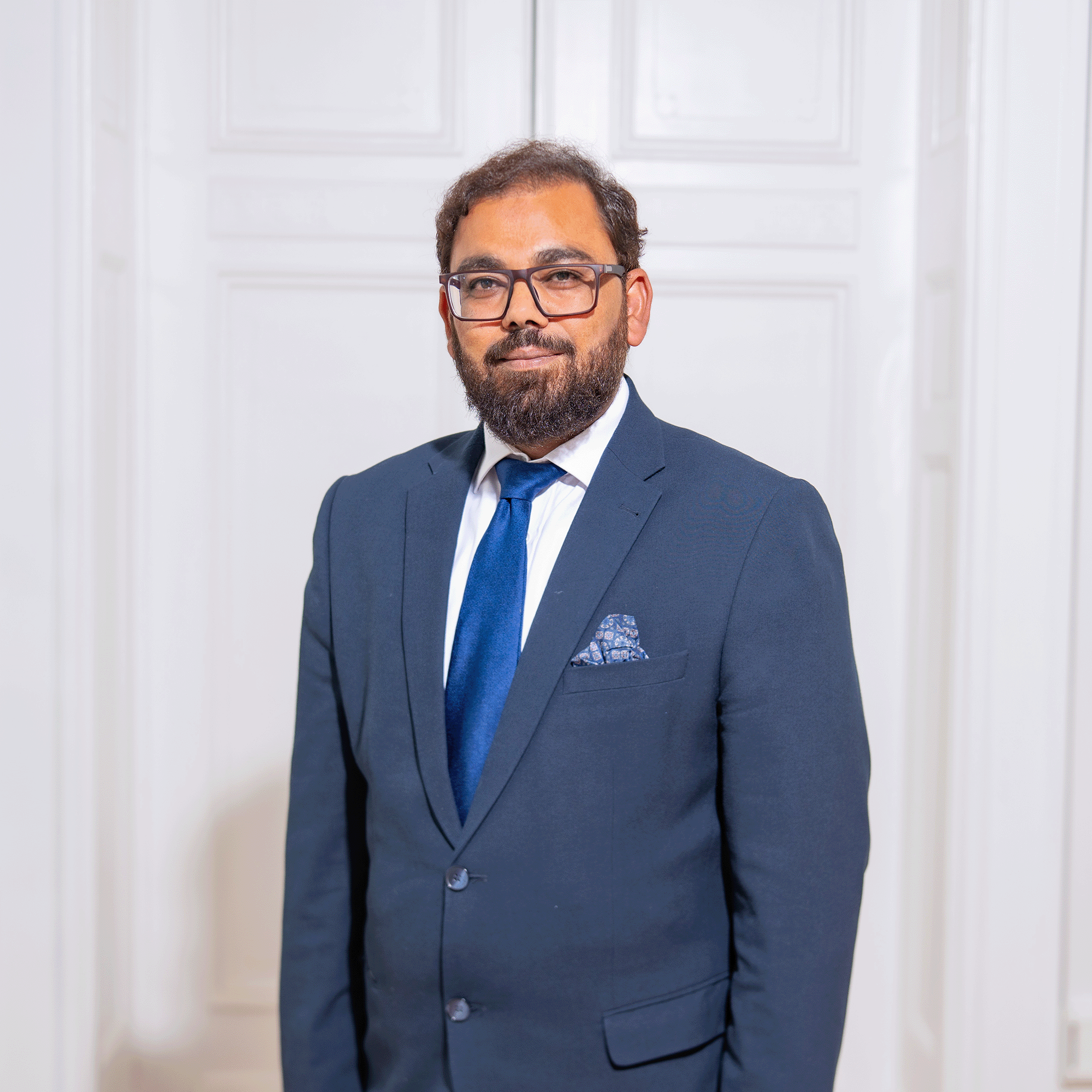
Benjamin Westhoff
Summar Iqbal Babar
Fellow AIA NRW
